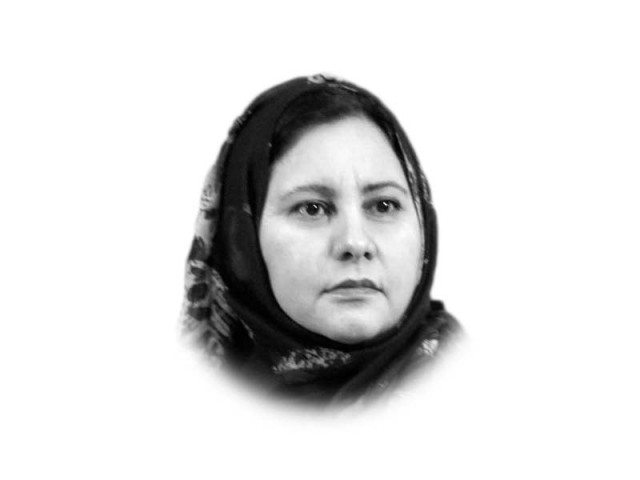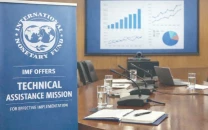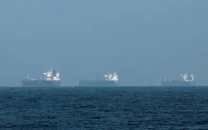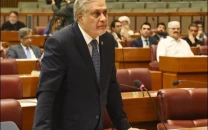The Russian mind
As Russia redefines its political philosophy, thinkers frame the clash with the West as a civilisational struggle

Like all great civilisations, Russia has evolved through a long history of political thought. At the end of Imperial Russia, along with the ideas of civilisational pluralism with Europe and a unique Russian identity, there were also ideas of anarchism, anti-state revolution and radical liberalism.
Later, with the Soviet Union, came strict Marxism, socialism, egalitarianism and the revolutionary thoughts of Lenin and Trotsky. When the USSR broke down in 1991, Russia was forced to revise its political thought and seek its identity in a new unipolar environment.
Yevgeny Primakov, post-USSR's intelligence chief and foreign minister, talked about multipolarity over unipolarity at a time when the US was crowning itself as the king of the unipolar world.
The Primakov Doctrine argued that the US-led unipolar world was unstable and unjust; not only undesirable but impossible in principle. He envisioned a "strategic triangle" between Russia, China and India to balance off US dominance and ensure Eurasian stability. He wanted integration of the CIS (Commonwealth of Independent States) region as Russia's strategic sphere and opposed Western interventionism in it. In a mutilated USSR, his realism had learned to respect state sovereignty and lean on pragmatic cooperation and non-interference.
Followed by him is Russia's contemporary political theorist, Alexander Dugin, referred to as 'Putin's brain'. Dugin connects with Primakov's multipolarity and a Russia-led Eurasian civilisation that counters Atlanticism. Building on that, he deems Russia to be leading the 'multipolarity by platforms' ideas, wherein institutional and economic vehicles like BRICS, SCO and SPIEF have become non-Western voice-sharing frameworks. Philosophically he replaces the Western liberal idea of universalism with civilisational pluralism that acknowledges the unique cultural identity of all different people.
More interestingly, Dugin also presents a thesis on the decline of the West through its radical individualism. He says the Protestant Reformation and nominalist philosophy that believed in only individual things compared to universal truths shifted the West toward individualism. This led to the rejection of all collective structures — one by one the Catholic Church, the Empire, the Nation-State and then the Family were forsaken, and Liberalism became a 'liberation from all collective identity' and from all authority. The welfare, happiness and satisfaction of the 'individual' became the core thought, and this worship of the individual, Dugin says, has led to the Western civilisation's self-destruction.
This hurling process of individualism has not stopped. In its evolution, it has taken the West from Catholicism to secularism; from empire to nation-states; from nation-states to the global civil society; and from family to feminist sexual and gender individualism. But this fire of individualism is not ready to abate. Before it wanted freedom from all collective or transcendent identity, now it wants liberation from 'gender' itself.
Dugin says after getting rid of traditional male/female identity, the next step of this rage will be to question 'human identity' itself — to be or not to be human! This transhumanism will liberate the individual from the idea of humanity. This posthumanism will have lost 'universalism' in the way, and will look towards a liberation from 'reality' itself. The liberation from 'reality' will come with the coming AI and virtual reality realm, which will allow the individual to escape any kind of reality. This will be the end of human civilisation as a distinct species, and the final step of liberalism, he says, will be "the freedom to choose whether to be human or not".
Dugin argues that the old, classical Liberalism defended majority rule, free speech and reasoned individual liberty, but the new Liberalism aka Woke Progressivism is replacing minority rule over the majority, which is now being deemed as populism or even fascism. This is the reversal of the democratic ideal, the vote of the common man that was supposed to be the guarantee of freedoms. The woke is rejecting this consensus of the majority and in its wave has become the totalitarian prescribing the right and wrong.
Humanity is reaching the "terminal station" of a 500-year process of individual liberation, he says. Posthumanism aided by AI, cybernetic enhancement, digital consciousness — all will contribute in the 'end of man' and loss of human identity. He calls this posthuman futurism not a work of fiction but actually a political and metaphysical project, a kind of compulsory progressivism, wherein people are not merely free to be progressive, but are obliged to conform to progressive ideologies. The West's intelligentsia has already thought down the future of its people — 'and it is dark'.
The question is, do the people in the West see the problem as Dugin does? Does the West realise that the cultural war waging inside its social fabric is not just a political maneuvering but its existential war — one between its people being human or abandoning humanity? This self-immolation of the West, a bitter journey towards identity that has snatched away all identity, will leave each individual wretched in a self-absorbed, self-possessed loneliness, the bitterness of which will eventually annihilate it or retrack it towards pure identity, pure relationship and pure morals.
Dugin thinks the West's hate for Putin also stems from his departure from progressive and globalist thinking, towards identities like traditional values, Christian faith and national sovereignty. The new Russian polity recognises family, patriotism and civilisational uniqueness. The battle has moved from capitalism verse communism, to c and conservativism of core human values. It has become a war between traditional civilisation and the progressive agenda of abolishing the human. The battle in political, social and metaphysical spheres proceeds in parallels.
And the question for humanity is, how much of morality, values and belief can be forsaken in the name of experimentation? Can individualism be allowed to erase all lines between right and wrong, between good and bad, between truth and falsehood? Or, in the widespread chaos and confusion of human societies, dotted with wars, poverty, disease and hunger, do we still believe that human society is sustaining only on goodness, trust, order and organisation, however little and flawed it may be?
















COMMENTS (1)
Comments are moderated and generally will be posted if they are on-topic and not abusive.
For more information, please see our Comments FAQ